Wife, Doctor and Nurse
Cast & Crew
Walter Lang
Loretta Young
Warner Baxter
Virginia Bruce
Jane Darwell
Sidney Blackmer
Film Details
Technical Specs

Synopsis
Dr. Judd Lewis, a Park Avenue practitioner, keeps on top of his busy schedule due to the efforts of his assistant, Miss Stephens, whom he calls "Steve" and treats as if her attractiveness is not something he notices. When Ina Heath, a wealthy socialite, injures her shoulder after she is thrown from a horse in the park, Judd takes an interest in her. After she does not show up for him to check the shoulder's progress, because, she says, she does not want to be like the many other women patients who clutter his office seeking his attention, Judd locates her at a club. As they dance, Judd learns that she took her bandage off because it itched, so he takes her into the kitchen and, using black kitchen tape, replaces the bandage. They are interrupted when Judd receives a message that he is needed at the hospital. After an exhausting operation, Steve massages Judd's head as he relaxes resting his head on her lap. Later, as Judd removes Ina's bandages, he flippantly proposes marriage, but then reveals that he means it, and they get married in New Rochelle. That night, Ina is introduced to the life of a doctor's wife when Judd's colleague, Dr. Therberg, calls for him to quickly come for a consultation regarding a dangerous operation. Although he promises that he will not be gone long, Judd conducts the operation himself and ends up sleeping at the hospital. Soon, he and Ina have a wonderful honeymoon in Europe, but upon their return, he stops by the office to deliver gifts and then leaves immediately for the hospital to perform an operation, while Ina, whom he has forgotten, waits in a cab. When he returns, she surprises him by not throwing a tantrum or bawling him out, which he expects that a wife left in that situation would do. One day, after Ina sees Judd from a distance with Steve, she becomes a bit concerned and asks Steve to lunch. Ina confesses that she thought "Steve" was a hulking interne and asks Steve if she is in love with Judd. When Steve replies that she is terribly happy working with him, but that it never occurred to either of them to think of a romance between them, Ina is satisfied. Later, however, when Judd kisses Ina in Steve's presence and talks in a passionate manner, Steve becomes upset. After another operation, as Steve massages Judd's head, she kisses him, then apologizes and walks away. She quits her job that day. Without Steve, Judd's manner changes abruptly as he becomes aloof and quick with Ina. When Ina finds out that Steve has left, she visits Steve in the country and learns that Steve did not realize that she was in love with Judd until their luncheon and that she quit because she didn't want to become a frustrated woman. Candidly, Ina reveals that now that she knows this, she does not want Steve to return. Soon Judd returns from work one day in lifted spirits. When Ina learns that Steve has returned to her job, she asks if Judd isn't in love with her. Although he denies that he is, she is afraid that he might be lying to himself. Ina leaves for Reno and Judd gets drunk. Steve finds him and takes him to her apartment, where she puts him to bed. As she prepares to sleep on the sofa, Ina, who turned back when she reached the airport, enters and accuses her of not losing any time. The phone then rings, and they learn that Judd's young friend Red has been hit by an automobile and won't let anyone but Judd operate on him. Together the women sober Judd up. The operation is a success, and afterwards, neither woman wants to give Judd up. Judd realizes that he cannot live without either of them, so they decide to try to forget that the luncheon, which put the idea of love into Steve's head, ever happened.

Director

Walter Lang
Cast

Loretta Young

Warner Baxter

Virginia Bruce
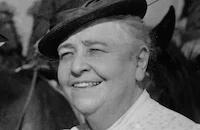
Jane Darwell
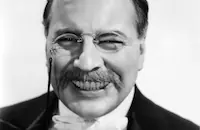
Sidney Blackmer
Maurice Cass

Minna Gombell
Margaret Irving
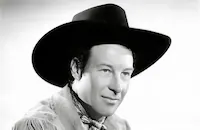
Gordon Elliot

Elisha Cook Jr.
Brewster Twins
Paul Hurst
Hal K. Dawson
George Ernest
Georges Renavent
Spencer Charters
Claire Du Brey

Lon Chaney Jr.
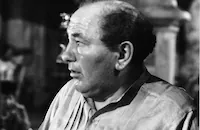
Charles Judels
Stanley Fields
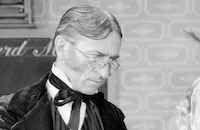
Olin Howland
Jan Duggan
Ruth Peterson
Forbes Murray
Hallene Hill
Torben Meyer
Guy Wilkerson
Bruce Warren
Landers Stevens
Jules Raucourt
A. Filauri
Vesey O'davoren
Eric Wilton
Jayne Regan
Margaret Brayton

Wesley Barry
Ruth Gillette
Harry Depp
Alice Ardell
Lynn Bari
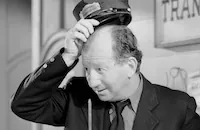
Hank Mann
June Gale
Philippa Hilbere
Lillian Porter
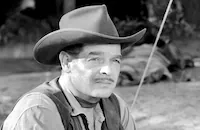
Robert Lowery
Crew
Joseph Aiken
Gene Bryant
Edward Cronjager
Mack Gordon
Raymond Griffith
David Hall
Roger Heman
Arthur Lange
Thomas Little
Harry Revel
Kathryn Scola
Walter Thompson
Lamar Trotti
Charles Van Enger
Gwen Wakeling
Darrell Ware
Darryl F. Zanuck

Film Details
Technical Specs

Quotes
Trivia
Notes
According to Hollywood Reporter, Warner Baxter and Loretta Young, who were originally to appear in Jean (released as The Baronness and the Butler []), were assigned to this film when Jean was taken off the production schedule. Barbara Stanwyck was announced for the role of "Steve," but when RKO balked at loaning her, Virginia Bruce was borrowed from M-G-M for the role, according to news items. According to a Hollywood Reporter news item, Edward Cronjager replaced Charles Van Enger as cameraman midway through the production. Allan Lane and Alan Dinehart are listed as cast members in Hollywood Reporter production charts, but their participation in the final film is doubtful. Some of the reviewers commented concerning the various outfits worn by Young in the film and the appeal of the film to women. Hollywood Reporter noted, "The production has been aimed throughout at women. Miss Young has an opportunity to wear the latest fashions, and she displays many creations that will interest the femme trade. Story, too, is calculated to please the women. Men May find it a trifle tiresome." Frank S. Nugent of New York Times remarked on "Miss Young's bid for the title of the screen's best-dressed woman. With every scene change she appears in a complete new outfit-an outfit, usually, that had the women of the audience in a laryngeal state of 'ahs' and 'ohs' and the men in a credit-conscious daze."
According to correspondence in the MPAA/PCA Collection at the AMPAS Library, PCA Director Joseph Breen warned the studio, in a letter dated May 7, 1937, that certain scenes in the script needed to be modified "otherwise the finished picture cannot be acceptable." The scenes in question, in Breen's words, "appear to be overly sex suggestive." Among other things, Breen cautioned the studio to take care with the scene of the interrupted wedding night, the honeymoon scenes and scenes of "Ina" waiting impatiently in bed while "Judd" is at the hospital. According to a letter from Breen to Will H. Hays, President of the MPPDA, dated August 27, 1937, nothing was heard from the studio concerning the film after the letter of 7 May until 24 Aug, when PCA members were asked by the studio to review the film. Breen and two assistants told Colonel Jason Joy of Twentieth Century-Fox that the film was unacceptable because it "makes comedy out of the deferment and the postponement of a consummation of the marriage vows." Breen tried to get Joy to have the offending sections cut, but Joy refused and suggested that Breen meet with studio head Darryl Zanuck. During Breen and Zanuck's subsequent discussion, Zanuck, according to Breen's letter to Hays, "became very angry, denied that there was any such suggestion, or flavor, in the picture and told me, point blank, that he would not 'cut a G-D-- inch out of the picture for you, Mr. Hays, or anybody else.'" Zanuck stated to Breen that he would appeal the PCA's decision to the MPPDA's Board of Directors, but later that day, Joy told Breen over the telephone that Zanuck had changed his mind and would "endeavor to make what cuts we thought were necessary in order to bring the picture under the Production Code." Breen and his staff prepared a list of recommended cuts, which Breen gave to Joy over the telephone, and by 27 Aug, eliminations were made in the wedding night scene, the honeymoon scene and one scene of Ina in bed. Particularly irritating for Breen in the original footage was Ina's announcement to Judd, when she arrives at the hospital after waiting for him to return on their wedding night, that "if the mountain will not come to Mohammed, Mohammed must go to the mountain." This line was cut from the film. Although the film was approved by the PCA after the studio agreed to make their requested eliminations in all prints, Breen urged Hays to have the MPPDA Board of Directors review the PCA's decision because "we owe it to members of the PCA staff to establish in Zanuck's mind whether or not our decision is correct. We cannot continue to have our integrity and our judgment questioned by Mr. Zanuck, unless we are prepared to suffer a falling-off, not only in confidence in ourselves, but in the confidence of the studios, in our decisions and judgments." This review, which, Breen acknowledged, the PCA had no right to request under their regulations, did not occur. On September 9, 1937, Zanuck sent a telegram to Hays informing him that the New York State censors passed the film with no eliminations. In the telegram, Zanuck stated, "I am still far from convinced that something most peculiar occurred on this production and in several weeks I want to definitely go ahead with the test case." No information has been located concerning this proposed "test case." According to the MPAA/PCA records, a nurses' association in Pennsylvania protested that nurses and hospital life were presented in an unfavorable light in certain films, including this. Also, according to the MPAA/PCA records, the film was banned in Germany during 1937 and 1938.












